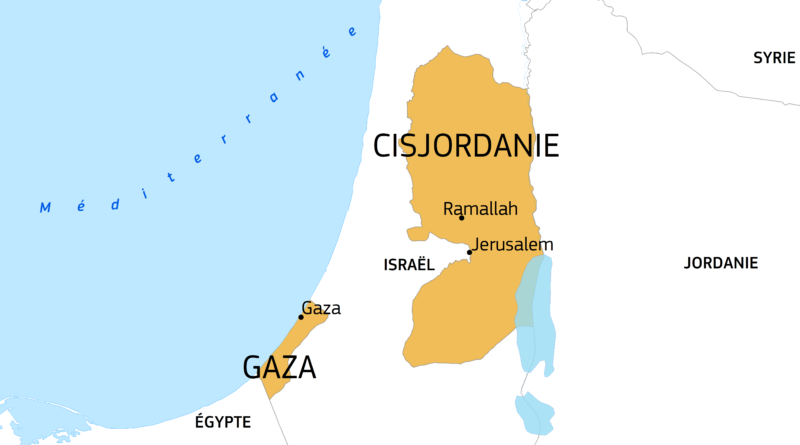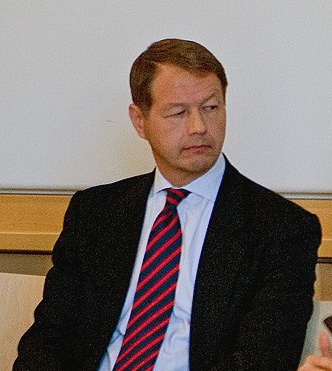Israel-Palestine. Update on the position of Europeans vis-à-vis the peace process
(B2) While the Israeli government could announce, on July 1, an annexation of part of the West Bank, the Europeans are holding their breath. Their role in the Middle East peace process has faded. It's Washington and Tel Aviv that seem to have the tempo now

From the peace plan to colonization?
Presented at the end of January, jointly by the American President, Donald Trump, and the Israeli Prime Minister, Benjamin Netanyahu, the peace plan entitled “ From Peace to Prosperity, a vision to improve the lives of the Palestinian and Israeli peoples intended to settle once and for all the Israeli-Palestinian quarrels that have undermined the Middle East for more than 70 years. It advocates a two-state solution (Israel and Palestine), but poses solutions that are so many problems: Jerusalem as the capital of Israel, Israel as the guardian of Palestinian security, and the Palestinian state remains landlocked, fragmented (Read: The six points of the American Middle East peace plan that are problematic). But the new government of national unity, led by B. Netanyahu (Likud, right) and Benny Gantz in coalition (Bleu-Blanc, center right) is taking up part of this plan on its own, starting with the annexation of part of the West Bank.
What is the European position on the American plan?
This plan is rejected by the European Union (read: The American peace plan for the Middle East in violation of international law denounces the European Union), as well as by the member states of the Arab League. But one or two Member States have a different opinion on this plan, in particular Hungary. Budapest makes it known loud and clear that they find this plan a good starting point, thus deviating from the traditional European position (see box).
What does the new annexation change for the peace process?
For European diplomats, annexation is a " major change “Notes a connoisseur of the file. Once the annexation is made, it would be much more difficult to achieve a two-state solution even as provided for in the American peace plan. This will undermine what little trust remains between the two sides, and will be seen as aggression by Palestinians and Arab countries in the region. This annexation is vigorously rejected by some Europeans, such as the Luxembourg Minister of Foreign Affairs (Read: The annexation of part of the West Bank by Israel is illegal. Like that of the Crimea (Jean Asselborn)). Others are quieter.
What are Europeans afraid of?
If Israel begins annexation, the risk of clashes will increase, recognizes an expert on the matter. It is difficult to predict whether the Palestinian Authority will support riots or prevent the population from becoming violent against Israel. Currently, she recommends avoiding revolts. But the risk of a third antifada is very present. The annexation has consequences for the entire Middle East region, because the reactions of the various actors and of the Arab 'street' cannot be foreseen.
And what about security cooperation?
The Palestinian Authority responded to the announcement of annexation in mid-May by ceasing its security cooperation with Israel (exchange of intelligence, presence of the police in area C, etc.), essential for the latter, to have a control over occupied populations and territories, as well as with the United States.
What will the European Union do if the colonies are annexed?
It is the unknown. The European Union does not have many cards to play, apart from launching a diplomatic offensive. The debate started several weeks ago to plan a response in advance has failed. Sanctions against Israel seem unlikely. Because it takes the unanimity of the '27'. And many states have an ideological, political or economic proximity to Israel. In mid-May, once again, the High Representative of the EU, Josep Borrell, asked " urge Israel to refrain from any unilateral decision that would lead to the annexation of any occupied Palestinian territory », but this call is not supported by Austria and Hungary (Read: Israel must not play with international law warns Josep Borrell). The objective of the Europeans to seek to avoid any measure of annexation seems difficult.
Why is this Israeli-Palestinian question so sensitive?
Each Member State inherits a past which dictates its conduct of international relations today. “There are 27 states, all very different in size, history, diplomatic traditions, alliances, etc. "," on a subject as difficult as this, there have always been a significant number of different opinions “, almost as many as there are Member States, explains a senior European diplomat, a good expert on this question. Positions also vary just as much between personalities on the same side as between the different political parties (see box).
(Aurelie Pugnet)
As many Member States as there are positions
Except for support for the internationally recognized parameters of the Middle East peace process (negotiated solution, providing for the peaceful coexistence of two States (Israel and Palestine), with Jerusalem as the capital of the two States, meeting the security imperatives of both , Europeans are very divided.
B2 grouped the 27 into three categories, according to their affinities with Israel or for the defense of the Palestinian cause. From the most "pro-Palestinian" of the group, without being anti-Israel (Ireland, Luxembourg, Sweden, Finland, Malta, Spain, Portugal...), passing through the middle group (Belgium, Italy, Greece, Cyprus, France, Slovenia, Germany), to the most “pro-Israeli”, without being anti-Palestinian (the Netherlands, Croatia, Lithuania, Poland, Romania, Czech Republic and Hungary). Read : Between Israel and Palestine, the hearts of Europeans swing…
Read also:

